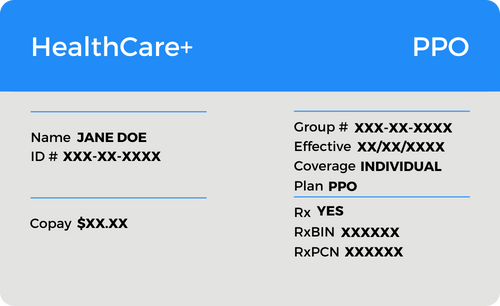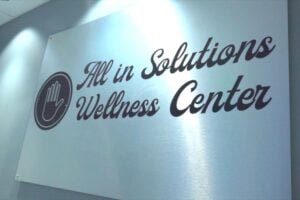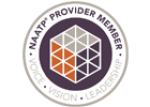Residential Treatment Program

What is Residential Treatment, and Why Is It Important?
Residential treatment is a crucial step in the recovery journey from substance abuse. This inpatient program provides a safe and structured environment designed to reset the body and mind, laying a solid foundation for a life free from addiction.
The first phase of a residential treatment program typically involves detoxification, a process where the body is cleansed of harmful substances. This phase is meticulously supervised by accredited medical professionals to ensure safety and effectiveness. The detox duration varies depending on the individual’s needs, but it generally lasts one to two weeks.
Following detox, clients can seamlessly transition to the next phase of residential treatment without the need to move to another facility. This phase includes comprehensive clinical services such as therapy sessions, medical evaluations, and psychiatric consultations for medication assessments. The length of this stage also varies based on individual needs, but it typically extends for another one to two weeks.
A monitored inpatient setting is particularly important during the early days of recovery. This environment ensures that individuals receive continuous medical and emotional support, significantly reducing the risk of relapse and complications. By providing round-the-clock care and supervision, residential treatment facilities create a safe space where individuals can focus entirely on their recovery.
Get Help
Residential Treatment Fundamentals
Residential treatment is a comprehensive system designed to achieve effective recovery results. Each component plays a crucial role, and the absence of any part can compromise the program’s success.
The four essential components are:
- Medical Care & Observation
- Clinical Intervention
- Accountable & Supportive Environment
- Holistic Treatments
Medical Care & Observation
Residential treatment facilities provide 24/7 medical care, which is vital for recovery as the transition from drinking/using to sobriety can be significant. Medically supported detox is a major component, as withdrawal symptoms can be dangerous and uncomfortable. Withdrawal refers to the negative side effects that occur when stopping substance abuse. These effects can range from body shakes and headaches to panic attacks and vomiting, varying based on the substance used. The duration and severity of withdrawal symptoms depend on the length and intensity of drug use and individual traits.
Residential treatment provides clinical care to manage withdrawal symptoms. Medical staff use various techniques, including medicated-assisted treatment (MAT), which involves carefully monitored medication to alleviate withdrawal symptoms.
Attempting detox without residential treatment can be dangerous due to the unpredictability of withdrawal symptoms. Unmanaged symptoms can lead to relapse, making residential treatment essential for safely quitting an addictive habit.
Once a client has been successfully detoxed, the medical team can begin to treat co-occurring physical and mental health conditions. This sometimes involves starting or stopping psychiatric medication, which requires additional observation.
Clinical Intervention
Therapy is a key component of recovery, helping individuals understand the reasons behind their substance use and develop strategies for a healthier life. Therapy options include:
- Individual Therapy: One-on-one sessions with a licensed therapist to discuss personal experiences and recovery goals.
- Family Therapy: Involves family members or close friends, the therapist, and the individual, fostering support and understanding among loved ones.
- Group Therapy: Encourages a sense of community among those in recovery, allowing them to share ideas, support each other, and maintain personal wellness.


Accountable & Supportive Environment
The inpatient setting of a residential addiction program is as crucial as the services provided. It offers benefits that are difficult to replicate in outpatient programs.
Firstly, an inpatient setting provides clients with essential structure and accountability. Early recovery can be emotionally challenging, and a structured environment helps clients remain focused, reducing the likelihood of succumbing to temporary apathy, anger, or temptation.
Secondly, being surrounded by peers who understand their struggles is invaluable. The camaraderie among clients fosters a sense of belonging and encourages openness, which can be crucial for emotional healing.
Thirdly, the inpatient setting offers a respite from the distractions of everyday life. By removing clients from their regular responsibilities, such as work, home, and family, they can concentrate fully on their recovery. This focused environment helps clients gain clarity and insight.
By ensuring accountability, providing support, and allowing clients to concentrate on their recovery, the inpatient setting creates an optimal foundation for long-term sobriety.
Holistic Treatments
Holistic components are vital to residential addiction treatment programs, addressing the multifaceted needs of recovery. Massage therapy and acupuncture significantly contribute to the healing process. Massage alleviates stress, reduces muscle tension, and promotes relaxation, which is crucial during the challenging early stages of recovery. Acupuncture, an ancient practice rooted in traditional Chinese medicine, helps balance the body’s energy, reduce withdrawal symptoms, and enhance overall well-being. These therapies provide a calming and restorative environment, supporting the body’s natural healing processes.
Nutritional counseling and yoga further enhance the holistic approach in treatment programs. Proper nutrition is essential for restoring health after substance abuse and nutritional counseling offers personalized dietary plans to replenish nutrients, boost energy, and strengthen the immune system. Yoga combines physical postures, breath control, and meditation to improve physical health, reduce stress, and enhance mental clarity. Together, these holistic components foster a comprehensive approach to recovery, addressing not just addiction symptoms but the overall well-being of individuals on their journey to sobriety.

Your Insurance May Cover Addiction Treatment
Did you know that most health insurance plans provide coverage for substance use disorder treatment? Submit your policy information below for a free, confidential review of your benefits. All In Solutions accepts most health insurance plans.

Types of Residential Treatment
Residential Treatment for Drug Addiction
In most cases, clients will start with detox when being admitted to a residential treatment facility for a drug addiction. The detox process is professionally supervised to ensure each client’s reactions are appropriately addressed. Withdrawal may follow detox, which is where the medical staff further engages to try and make the client comfortable.
A few examples of drug addictions that can require residential treatment are as follows:
- Benzodiazepines, such as Xanax, Klonopin, and Ativan
- Prescription Opioids, such as Fentanyl, Oxycodone, Codeine, and Heroin
- Sleeping medications, such as Ambien and Halcion
- Stimulants, such as Addrerall, Cocaine, Amphetamines, and Meth
These are just some of drugs in which addiction can negatively impact one’s life. If you or a loved one if considering enrolling in a residential treatment program, please be sure to verify the facility accommodates the specific drug that’s caused the addiction.
Residential Treatment for Alcohol Addiction
Similar to the residential treatment for drug addiction approach, those suffering from alcohol use disorder will start their treatment with a detoxing process. A 24/7 medical staff is monitoring this process, along with any withdrawal symptoms, attentively. Since withdrawal can be tolling on some clients, certain medications are given to help reduce negative impacts. These impacts can range, but typical symptoms can be nausea, vomiting, diarrhea, and even seizures. This is why medication is recommended for those going through withdrawal.
Alcohol addiction recovery is best addressed at a residential treatment facility, given their continuous experienced care, comfortable environment, and a safe and effective program specific for each client.
Residential Treatment for Co-Occurring Mental Health Issues
When an individual has a substance abuse disorder along with a mental health disorder, it is referred to as a co-occurring disorder. Residential treatment for co-occurring disorders address these clients’ issues through dual diagnosis treatment.
A few examples of mental health diagnoses that are treated at the residential treatment level are:
- Bipolar disorder
- Anxiety disorder
- Depression
- Eating disorder
- Personality disorders
With a dual diagnosis treatment program, clients can expect to start their program with detoxification. It is important to clear the body of all toxins in order to get the mind ready for constructive conversations. As per standard practice, a medical team is involved at all portions of your time in residential treatment, so know there’s support with you if you feel any struggles, especially from potential withdrawal. Along with a compassionate medical team, medication is available for those that may need extra help if withdrawals are experienced.
After detox is complete, continued therapy is of high importance. Working with psychologists and psychiatrists is a key part in the dual diagnosis program, for this is where the mental disorder portion is attended to. Honest conversations and engaging exercises are worked through to help iron out the wrinkles that have been unaddressed in your life.
A few types of therapy that help treat co-occurring mental health issues are:
- Cognitive Behavior Therapy (CBT), which involves talking with your therapist about the potential motivation(s) for your addictive habit, discussing fears in your life, and reviewing confidence building practices. The goal is to modify your mind’s destructive behavior through conversation that achieve better beliefs, thoughts, and feelings.
- Dialectic Behavioral Therapy (DBT), similar to CBT, but is more aimed at resolving emotional issues that you may be experiencing. Such issues can be the cause to self-harm, so DBT is in place to specifically tackle mental illness with the goal to allow you to live positively in the moment.
- Integrated Group Therapy, which seeks to treat the symptoms that are common among those suffering from mental health illnesses and substance use disorders all at once.
- Individual Psychotherapy, which treats behaviors caused by substance abuse or mental health problems in a one-on-one environment with your psychiatrist.
Clients who have a co-occurring disorder can struggle badly, and are encouraged to get the best help to recovery at a residential treatment facility.
Recovery Support is a Phone Call Away
You don't have to detox alone at home. Reach out for help.
Call NowWhat to Look for in a Residential Treatment Facility
When researching potential residential treatment facilities, you’ll more than likely be bombarded with a plethora of options. Some may be good; some may be questionable. But knowing what to scope out will be important so you know you’re getting involved with a reputable, successful, and effective facility. It is recommended to at the least consider the following items:
Comfort and Accommodations
Your mind and body during recovery may be sensitive with the changes it will undergo, so you’ll want to make sure the residential treatment facility is comfortable and accommodating for your needs. Peruse through pictures, call and ask questions, and even self-reflect on what you may want during your time in residential treatment.
Accreditations and Reviews
Be sure that the facility you’re considering for yourself or a loved one is officially recognized within the industry. Legitimate facilities should have their credentials easily displayed, from their state license emblem, to their industry recognition seals.
It would be wise to also read reviews regarding the facility you may be interest in attending. A source like Google Reviews is fairly consistent with reliable ratings and comments. You can get a gauge as to how good or bad a facility is from the amount of excellent or poor ratings that facility received. Some of the reviewers’ details can also help paint a picture of what you can expect.
Program Provisions
Ensure the residential treatment program in consideration offers what you need, from a day to day schedule, to proper medical assistances (like medication if needed). Try to find out what you can expect from a daily perspective; what will mornings, afternoon, and evenings consist of, and be sure you’re up for that type of potential rigorousness. Every facility operates differently, and there can be a better match out there for yourself than others.
Alumni Program
Recovery does not simply end after a residential treatment program is compete. Recovery can be a lifelong road. On this road outside of a treatment program, you may experience hurdles and temptations. This is where a strong support system is crucial. Be sure that the residential treatment facility you’re considering has a strong alumni program with a proven track record. Find out about post program meetings and contact information if ever needed someone to talk to.

All In Solutions Locations Offering Residential Treatment
West Palm Beach, Florida




All In Solutions Wellness Center is a private 22-bed residential treatment facility in West Palm Beach. The facility offers 24-hour nursing staff and Master’s-level therapists.
- 7 Day Detox
- 14 Day Detox
- 21 Day Detox & Residential
- 28 Day Detox & Residential
All In Solutions Wellness Center is a private addiction treatment provider. As such, we are unable to accept state-funded insurance plans, including Medicare and Medicaid. We do, however, accept most private insurance plans (typically provided by an employer or paid for through the marketplace), including Blue Cross Blue Shield, Aetna, Anthem, Cigna, United Healthcare, and more.
To help you determine your treatment options, All In Solutions offers a free insurance verification. All you have to do is provide us with your name, contact information, and insurance information, and our financial experts will verify your policy and tell you everything you need to know about what your insurance will and will not pay for.
Simi Valley, California




All In Solutions Detox is an intimate 12-bed facility in Simi Valley with residential treatment programs. With an onsite fitness center, chef-prepared meals, and modern semi-private rooms, client comfort is always prioritized.
- 7 Day Detox
- 14 Day Detox
- 21 Day Detox & Residential
- 28 Day Detox & Residential
All In Solutions Detox is a private addiction treatment provider. As such, we are unable to accept state-funded insurance plans, including Medicare and Medicaid. We do, however, accept most private insurance plans (typically provided by an employer or paid for through the marketplace), including Blue Cross Blue Shield, Aetna, Anthem, Cigna, United Healthcare, and more.
To help you determine your treatment options, All In Solutions offers a free insurance verification. All you have to do is provide us with your name, contact information, and insurance information, and our financial experts will verify your policy and tell you everything you need to know about what your insurance will and will not pay for.




